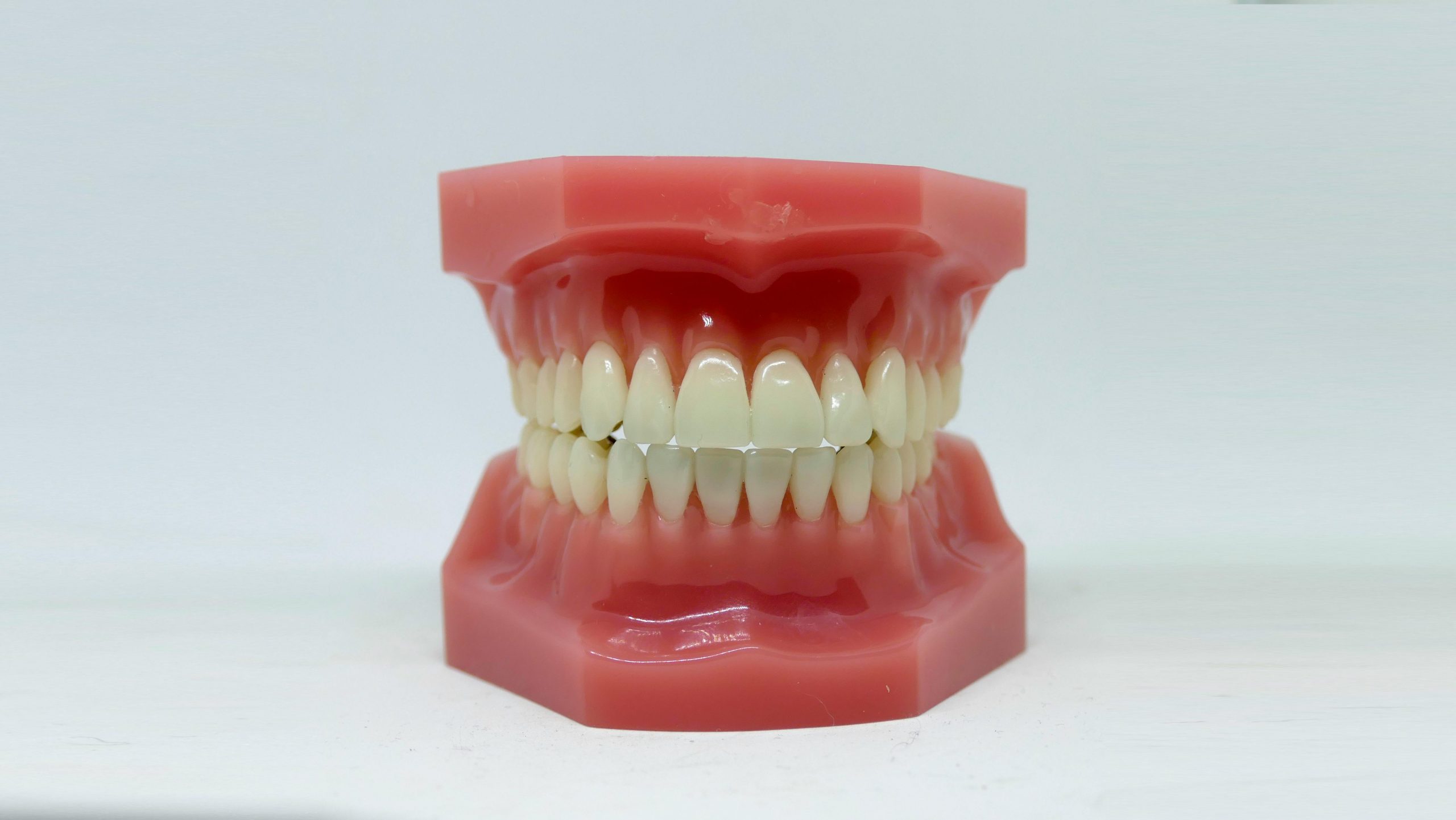
- Wisdom teeth pain often presents as pressure or throbbing at the back of the jaw, sometimes radiating to the ears, temples, or neck.
- Partially erupted wisdom teeth can cause swelling, gum irritation, sensitivity, bad taste, and occasional bleeding, often leading to infections like pericoronitis.
- Severity varies from mild soreness to intense, throbbing pain; severe or persistent discomfort may indicate impaction, infection, or cyst formation.
- Jaw swelling, headaches, earaches, and difficulty opening the mouth are common signs that wisdom teeth are causing issues.
- Home remedies like saltwater rinses, cold compresses, and over-the-counter pain relief can temporarily ease discomfort but cannot resolve underlying complications.
- Professional dental evaluation is essential when pain persists, swelling worsens, or signs of infection appear, to determine whether extraction or other treatment is needed.
- Understanding the symptoms and differences from other dental pain allows early intervention, preventing long-term complications and maintaining overall oral health.
Wisdom teeth are the last set of molars to appear, usually emerging between the ages of 17 and 25. For many, these teeth cause more trouble than benefit. Pain, swelling, and discomfort are common signs that your wisdom teeth are trying to make their way through. But what does wisdom teeth pain feel like, exactly? This guide will help you understand the sensations, identify warning signs, and know when to seek help.
What Are Wisdom Teeth and Why Do They Hurt?
Wisdom teeth, also known as third molars, are the final set of teeth at the back of your mouth. In some people, they emerge without causing issues. In others, they become impacted, grow at an angle, or only partially erupt, leading to discomfort.
Pain occurs because there is limited space in the jaw for these teeth, causing pressure, irritation, and sometimes infection. Understanding the source of pain is the first step in identifying whether it’s related to your wisdom teeth or another dental issue.
How Can You Tell If Wisdom Teeth Are Coming In?

Many people confuse general tooth pain with wisdom tooth pain. Here are common signs that your wisdom teeth may be emerging:
- Mild to severe pain at the back of the jaw
- Swelling around the gums near the molars
- Red or inflamed gums
- Difficulty opening your mouth fully
- Jaw stiffness or soreness
- Headaches or earaches caused by jaw pressure
These symptoms often come in waves and may worsen when chewing or biting down. Recognizing them early can help you manage pain and prevent complications.
What Does Wisdom Teeth Pain Feel Like Compared to Other Tooth Pain?
Wisdom teeth pain can feel noticeably different from other dental discomfort, though it’s easy to confuse at first. While cavities usually cause sharp, localized pain and gum disease may produce throbbing or tender gums, wisdom tooth pain often has a combination of symptoms that make it unique.
Typical characteristics include:
- Pressure or throbbing in the back of your jaw: Unlike a cavity, which is usually focused on a single tooth, wisdom tooth pain often feels deeper, like your jaw is being stretched from within.
- Radiating pain: The discomfort may travel to your ears, temples, or neck, creating tension or a dull ache in areas seemingly unrelated to the tooth itself.
- Intensified pain with movement: Chewing, talking, yawning, or even opening your mouth wide can aggravate the pain because the tooth pushes against surrounding teeth and tissue.
- Variable intensity: Wisdom tooth pain can fluctuate, presenting as a dull ache interspersed with sharp bursts, especially if the tooth is only partially erupted or causing irritation to the gums.
Other clues that the pain is likely wisdom tooth-related rather than a minor cavity include persistent discomfort over days or weeks, swelling around the jaw or gums, and pain that increases in intensity over time. If these symptoms align with your experience, it’s worth consulting a dentist to confirm whether your wisdom teeth are the culprit.
What Does Discomfort from Partially Erupted Wisdom Teeth Feel Like?
A partially erupted wisdom tooth is one that has broken through the gum but hasn’t fully emerged. This condition can create a small flap of gum tissue over the tooth, where food and bacteria easily get trapped, sometimes leading to pericoronitis, a painful gum infection.
Symptoms of partially erupted wisdom teeth include:
- Pain when biting or chewing on that side of the mouth: The pain often comes in waves, worsening when pressure is applied.
- Swelling around the tooth and gum line: Gums may feel tender, red, or puffy, sometimes affecting a larger portion of the jaw.
- Bad taste or odor in the mouth: Food trapped under the gum flap can cause bacteria buildup, leading to unpleasant odors or a bad taste.
- Sensitivity to hot or cold foods: The partially exposed tooth may have exposed dentin or irritated nerves, making it unusually sensitive.
- Occasional bleeding from the gum flap: Minor bleeding can occur when brushing or eating, particularly if the gum tissue is inflamed.
- Difficulty cleaning the area: The awkward position of the tooth often makes it challenging to maintain proper oral hygiene, which can exacerbate pain and swelling.
Partial eruptions are one of the most common sources of wisdom tooth discomfort. While home care can provide temporary relief, professional evaluation is recommended, especially if pain, swelling, or signs of infection persist. Early intervention can prevent more serious issues, including abscesses or extensive gum infections.
Can Wisdom Teeth Cause Jaw Swelling?
Yes. Jaw swelling is a frequent symptom when wisdom teeth are impacted or infected. The swelling may be:
- Localized to the back of the jaw
- Tender to touch
- Accompanied by redness or warmth
- Sometimes affecting the lymph nodes under the jaw
Swelling can make eating, talking, and even opening your mouth uncomfortable. It’s a sign that your body is reacting to irritation or infection around the wisdom teeth.
How Severe Can Wisdom Teeth Pain Get?
The severity of wisdom teeth pain can vary greatly from person to person, depending on factors like the tooth’s position, whether it’s impacted, and whether there’s an infection. Understanding the range of discomfort can help you decide when it’s time to seek professional care.
- Mild pressure or soreness: Some people experience only occasional dull pressure or mild soreness at the back of the jaw. This discomfort might come and go and often doesn’t interfere with daily activities. It’s commonly noticed when the tooth is just starting to emerge.
- Moderate pain affecting chewing and speaking: As the tooth continues to push through, the pain can become more noticeable. Chewing, speaking, or yawning may trigger discomfort, and the jaw might feel slightly stiff or tender. This is a signal that the tooth is applying pressure to surrounding tissues and teeth.
- Severe, throbbing pain that radiates: In cases where the tooth is impacted or partially erupted, the pain can become intense and throbbing. It may radiate to the ear, temple, or even down the neck. This type of pain can make it difficult to eat, sleep, or concentrate on daily activities.
- Headaches and jaw stiffness: Impacted wisdom teeth can cause muscle tension in the jaw, leading to headaches and stiffness in the surrounding muscles. The pain may intensify during chewing or opening your mouth wide.
Severe or persistent pain is often a sign of complications. These can include:
- Impaction: The tooth is trapped under the gum or jawbone, pressing against neighboring teeth.
- Infection: Bacteria trapped under the gum flap can cause pericoronitis, swelling, and pus formation.
- Cyst formation: Rarely, cysts or other growths may form around an impacted wisdom tooth, causing significant pain and potential jaw damage.
If your pain falls into the moderate to severe range, worsens over time, or is accompanied by swelling, fever, or difficulty opening your mouth, it’s essential to schedule a dental appointment promptly. Early evaluation can prevent long-term damage and reduce the risk of infection.
Are Headaches and Earaches Linked to Wisdom Teeth Pain?

Yes. The nerves in your jaw are closely connected to those in your head and ears. When a wisdom tooth pushes against other teeth or the jawbone, it can trigger:
- Tension headaches
- Ear pain or a feeling of fullness in the ear
- Neck stiffness
- Generalized discomfort around the face
Understanding this connection helps you identify whether your pain is dental-related or caused by other issues.
What Causes Wisdom Teeth to Be Painful?
Several factors contribute to wisdom tooth pain:
- Impaction: Teeth trapped under the gum or jawbone
- Angle of eruption: Teeth growing sideways or at an angle
- Crowding: Limited space causing pressure on adjacent teeth
- Infection: Bacteria getting trapped under partially erupted gums
- Cysts or other complications: Rare but serious conditions affecting the jaw
Knowing the cause helps in deciding whether home remedies are enough or if professional intervention is necessary.
How Can You Identify Infection Around Wisdom Teeth?
Infections around wisdom teeth, such as pericoronitis, can worsen discomfort. Signs include:
- Persistent swelling of the gum near the tooth
- Red, tender, or bleeding gums
- Foul taste or odor in the mouth
- Pus or fluid around the tooth
- Fever or general malaise in severe cases
If you notice these symptoms, it’s important to visit a dentist promptly. Untreated infections can spread and lead to more serious complications.
What Home Remedies Can Help Ease Wisdom Teeth Pain?
While professional care is often needed, there are ways to manage discomfort at home:
- Rinse your mouth with warm salt water to reduce bacteria
- Use over-the-counter pain relievers like ibuprofen or acetaminophen
- Apply a cold compress to the cheek to reduce swelling
- Avoid hard, chewy, or sticky foods that irritate the area
- Maintain good oral hygiene to prevent infection
These measures can provide temporary relief but may not resolve underlying issues like impaction.
When Should You See a Dentist About Wisdom Teeth Pain?
Not all wisdom tooth pain requires removal, but professional evaluation is important if you experience:
- Persistent or worsening pain over several days
- Swelling that does not go down with home remedies
- Difficulty opening your mouth or swallowing
- Signs of infection like fever, pus, or foul taste
- Pain radiating to other teeth or jaw areas
Your dentist can take X-rays to assess the position of your wisdom teeth and recommend extraction or other treatments if necessary.
Can Wisdom Teeth Pain Go Away on Its Own?
Sometimes, mild discomfort may ease as the tooth fully erupts. However, pain that persists or worsens usually indicates complications such as:
- Impaction
- Gum infection
- Pressure on other teeth
It’s better to get checked early rather than wait for pain to become severe.
What Does Wisdom Teeth Pain Feel Like During Extraction Recovery?
If you have your wisdom teeth removed, it’s normal to experience:
- Swelling in the jaw and cheeks
- Bruising around the extraction site
- Dull to moderate throbbing pain for a few days
- Mild bleeding or oozing from the gums
- Temporary difficulty opening the mouth
Following post-operative care instructions can minimize discomfort and prevent infection.
How to Differentiate Wisdom Tooth Pain From Other Tooth Problems?
Since other dental issues can mimic wisdom tooth discomfort, look for:
- Location: Wisdom tooth pain is usually at the very back of the jaw
- Timing: Pain may come in waves as the tooth erupts
- Associated swelling: Jaw and gum swelling are common with wisdom teeth
- Radiating pain: Ear, temple, or neck discomfort often accompanies wisdom tooth issues
If you’re unsure, a dentist can provide a clear diagnosis using X-rays and oral examination.
Common Questions About Wisdom Teeth Pain
Can wisdom teeth pain cause fever?
Yes, if infection is present, you may develop a low-grade fever. High fever requires urgent medical attention.
Why does my jaw hurt more at night?
Jaw muscles relax at night, which can make pressure from erupting teeth more noticeable.
Can wisdom teeth affect other teeth?
Yes. Crowding and misalignment caused by erupting wisdom teeth can push against neighboring teeth, causing discomfort or shifting.
Is swelling normal with wisdom teeth?
Mild swelling is common during eruption. Persistent or severe swelling may indicate infection or impaction.
Summary: Recognizing Wisdom Teeth Pain
Wisdom teeth pain can range from mild pressure to severe throbbing discomfort. Key signs include:
- Pain at the back of the jaw
- Swelling or tenderness of gums
- Difficulty opening your mouth
- Headaches, earaches, or jaw stiffness
- Pain that comes and goes or intensifies when chewing
Understanding these symptoms allows you to act early and seek care before complications arise.
Final Thoughts
Knowing what wisdom teeth pain feels like is essential for maintaining dental health. While some discomfort is normal, persistent pain, swelling, or signs of infection should prompt a dental visit. Regular check-ups and early intervention can prevent long-term complications and ensure your teeth, gums, and jaw remain healthy.
By paying attention to your symptoms, practicing good oral hygiene, and consulting your dentist when needed, you can manage wisdom teeth pain effectively and avoid unnecessary discomfort.

